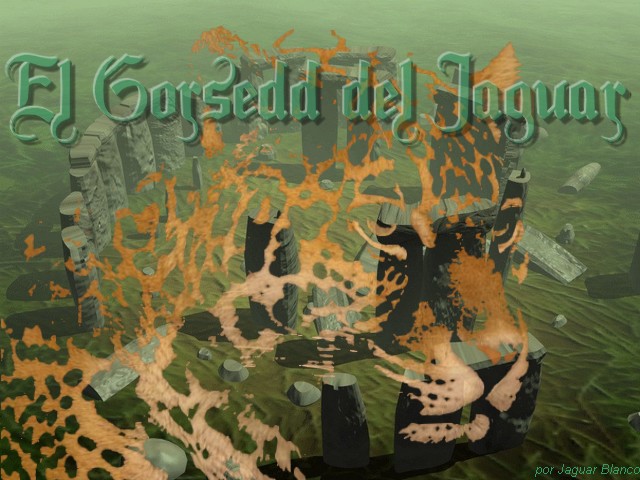Bards
"And there are among them composers of verses whom they call Bards; these singing to instruments similar to a lyre, applaud some, while they vituperate others."
Diodorus Siculus Histories 8BC
The Bards were the keepers of tradition, of the memory of the tribe - they were the custodians of the sacredness of the Word. Although they represented the first level of training for an apprentice Druid, we should not make the mistake of thinking that a Bard was somehow in a lowly or inferior position. There were many levels of accomplishment, but the most skilled of Bards were held in high esteem and partook of many of the functions of both the Ovate and the Druid.
The training of a Bard was intense and lasted for many years. There were variations in the curricula between Scotland, Ireland and Wales. In Ireland it is recorded that the training lasted twelve years, with students undergoing the following rigorous curriculum:
In the first year, the student progressed from Principle Beginner [Ollaire] to Poet's Attendant [Tamhan] to Apprentice Satirisist [Drisac]. During this time they had to learn the basics of the bardic arts: grammar, twenty stories and the Ogham tree-alphabet .
Over the next four years, they learnt a further ten stories each year, a hundred ogham combinations, a dozen philosophy lessons, and an unspecified number of poems. They also studied dipthongal combinations, the Law of Privileges and the uses of grammar.
By his sixth year the student, if he had stayed the course, was called a Pillar [Cli] and would study a further forty-eight poems and twenty more stories.
Over the following three years, he was termed a Noble Stream [Anruth] because 'a stream of pleasing praise issues from him, and a stream of wealth to him'1. During this time he learnt a further 95 tales, bringing his repertoire up to 175 stories. He studied prosody, glosses, prophetic invocation, the styles of poetic composition, specific poetic forms, and the place-name stories of Ireland.
The final three years of his training entitled him to become an Ollamh, or Doctor of Poetry, passing through the grades of Man of Learning [Eces] and Poet [Fili]. In his tenth year the student had studied further poetic forms and composition, in his eleventh year 100 poems, and in his twelfth year 120 orations and the four arts of poetry. He or she was now the Master or Mistress of 350 stories in all.
As Ollamh, Doctor of Poetry, he was entitled to receive a gold branch. As Anruth, Noble Stream, he had carried a silver branch, and before that - throughout his training - he had carried a bronze branch. These branches had bells attached to them, so that as the poet strode into the hall to recite a poem or tell a tale, he would be accompanied by the sound of bells - warning the audience to become silent, and summoning the help of the inner realms to ensoul his poem or story.
In Wales and Scotland the training of a bard was similarly rigorous, although with different grades and a different curriculum.
O Hear the voice of the Bard
Who present, past and future sees
Whose ears have heard the holy Word
That walked among the ancient trees...
-William Blake, first Song of Experience
Knowing something of what the Bards did and how they were trained, we can ask ourselves what relevance the Bardic work might have for us today.
It is no coincidence that we begin our study in Druidry within the Bardic Grade. Its importance as a foundation for our lives and character and spiritual development is no less significant than it was thousands of years ago, and it could be argued that it is even more essential today than it was then. The clue to understanding why this should be so lies in the realisation that the historical Bards worked with Record and with Inspiration. One of the prime reasons for modern man's sense of alienation lies in the fact that he has cut himself adrift from both the natural world and from the roots of his past. Practising Druidry is about healing this alienation - reconnecting to our past and to the world of nature. In the Bardic grade we open ourselves to the restorative power of the Druid understanding of Nature - we allow the Mandala of the Eightfold Seasonal Cycle, explained in the next chapter, to be grounded in our beings. Working with Record means working with heritage, lineage, and the mythology and stories of the tribe. Working with Inspiration means opening ourselves to our inner creativity.
The Bardic stream is not simply a body of knowledge we once possessed and which we attempt to regain - it is a spiritualised mode of artistic creative consciousness which is dynamic and living - the future holds as much, if not greater promise than the past.
In the Bardic Grade we open to what it means to be living on the earth with the ability to be creative. Although this is the first stage of Druid training, its purpose reaches to the very heart of Druidry - which is the development of a mastery of the powers of generation - at the Bardic level this involves the generation of creative works - of music, song, poetry and art in all its forms. In the Ovate and Druid work we relate to this power in the same way but we also become concerned with generating healing and love, ideas and light. The Bard's knowledge of and skill with the power of the Word becomes magical with the Druid: understanding the creative force of sound, the Word is used to generate seeds of light that echo through creation.





